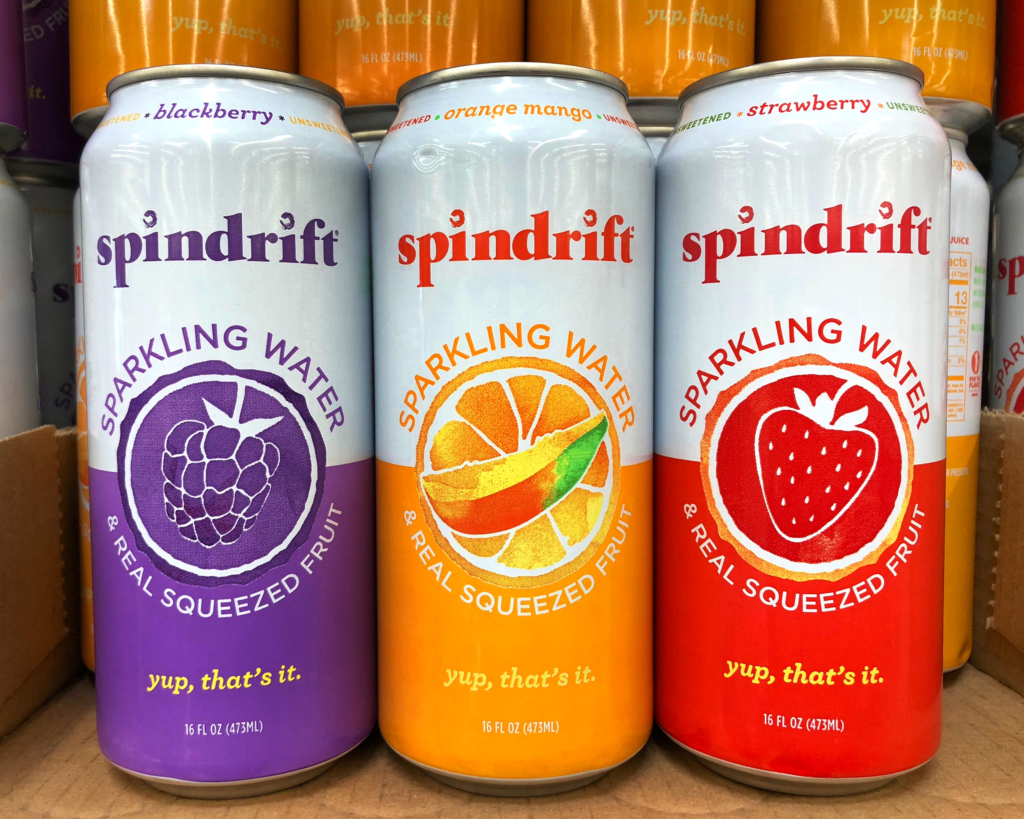Overview
Spindrift Sparkling Water found itself in hot water when a group of consumers sued, alleging false advertising because of the company’s claims that its flavored and sparkling water is “all natural.” A class of consumers filed a false advertising suit in northern California, claiming that the brand’s added citric acid was anything but natural.
Case Facts
Plaintiff Madeline Pantoni alleged that Spindrift falsely labeled its sparkling water as containing only water and real fruit. The front packaging specifically states “SPARKLING WATER & REAL SQUEEZED FRUIT: yup, that’s it.” Also at issue is the Spindrift Spiked sparkling water, which the plaintiffs allege has packaging that leads consumers to believe it contains only water, fresh juice, and alcohol.
The ingredient list on the back of the individual containers and boxes of the products reveal that manufactured citric acid, a preservative, is also an ingredient. The complaint states that the “Defendant’s inclusion of citric acid in the Products contradicts the Challenged Representations, which explicitly informs consumers that the products only contain sparkling water or spiked sparkling water and “real” “fruit”—nothing more and certainly not artificial or synthetic flavoring agents and preservatives derived from mold.” Plaintiffs allege that they paid a price premium for an “all natural” beverage, and while citric acid can be found in freshly squeezed juice, the citric acid in Spindrift products is manufactured from black mold cultivated from root vegetables and corn syrup.
Yup, That’s Not Quite It
Consumers looking for preservative-free and “clean” food and beverages often pay a higher price for fewer ingredients. Having “clean” and “natural” labeling is profitable. According to a 2017 survey, 75% of US consumers will pay a higher price for products advertised as “clean” and “natural,” and the market for these products was predicted to reach $180 billion by 2020. “All natural” marketing lands many brands in court for false advertising when the front label is at odds with the ingredients on the back label. It is up to courts to decide if the packaging was misleading and whether consumers were damaged because they paid a higher price for the “natural” ingredients.
Survey Use in the Spindrift Case?
When the plaintiff or the defendant in a case like this requires reliable evidence of consumer perception of what is “natural,” and what is communicated by the labeling, they can turn to consumer surveys. In this case, it would be possible for either party to submit a survey measuring whether consumers believed that the product only contained natural ingredients. It is also possible to measure whether a reasonable consumer would know whether citric acid, a naturally occurring preservative, was manufactured, based on the ingredient list.
MMR Strategy Group is not involved in this ongoing case, but we have substantial experience conducting consumer surveys to measure allegedly false advertising claims and alleged trademark violations. If you require a reliable, trustworthy survey in a litigation matter, contact MMR Strategy Group.
